The Northern Kentucky Chamber has provided this final legislative round-up, offered in partnership with MML&K Government Solutions:
The 2021 Kentucky General Assembly has adjourned and is officially in the books. The legislature may only return this year if called by the Governor into a Special Session.
With additional federal funds to be spent and other funding issues potentially unfinished, there is a better than normal chance that Governor Beshear and legislative leaders may find reason for a special session in the coming months. This includes a potential increase in federal infrastructure funding, which will require a local funding match in order to access funding for mega projects.
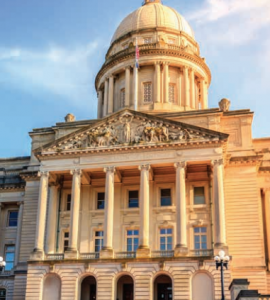
Missed Opportunity – Invest in Infrastructure
Perhaps the biggest missed opportunity this session was the lack of action to modernize the state’s road fund formula. Kentucky’s Road Fund has been underfunded since gas prices plummeted in the mid-2010s. This year was the fourth year Boone County Representative Sal Santoro has introduced legislation to modernize the road fund formula and increase funding. And this is the fourth year that his peers in the House and Senate failed to support his efforts.
Despite the Brent Spence Bridge being shut down for 41 days and making national news for weeks, members of the Kentucky legislature don’t see the urgency in the need to invest in infrastructure. Nearly 20 city councils and fiscal courts across Northern Kentucky adopted resolutions of support for increased investments and a modernized formula to help with their maintenance needs.
At the end of the day there was not enough support in the Senate for final passage.
Liability Protections Passed House; Governor Veto Question Remains
On the final day of the 2021 Session, the House passed Senate Bill 5 to provide meaningful liability protections for businesses, schools and individuals in the midst of the COVID-19 pandemic by a vote of 70-26. However, the bill was passed after the veto-proof period and could be vetoed by the Governor without the ability of the legislature to override.
The final version of the bill included additional tweaks to the previous language proposed, however it was language the NKY Chamber supported.
The NKY Chamber will be working alongside the broad coalition of 60 organizations to encourage the Governor to not veto this important piece of legislation in the coming days.
Final Two Days
In the final two days of legislative action, the first day was almost exclusively limited to overriding gubernatorial vetoes and teeing up the several conference committees lingering into the final two legislative days. The second day’s action cleared the deck of remaining legislation and introduced some new language, including the passage of high-profile acts regarding COVID liability protection (Senate Bill 5), a nine-figure appropriation enabling full-day kindergarten, many additional appropriations from the federal American Recovery Plan Act (ARPA), and the creation of an economic opportunity zone in Louisville’s west side.
With the exception of action taken on prior vetoes, all of the activity from these last two days of the legislative session is subject to veto without the potential for overrides. Governor Beshear has 10 days, not including Sundays, to sign, veto, or allow bills to become law without signature. Many of the ARPA funding expenditures were passed with the agreement of the Governor and are not expected to be vetoed.
Signed Bills. The Governor signed the vast majority of the bills sent to his desk, approximately 130, while letting 9 become law without his signature.
Veto Overrides
Beshear vetoed all or portions of 26 bills and one joint resolution last week during the veto period, and the legislature voted to override all but three of them Monday. Those 24 bills with veto overrides will become law around June 30 unless they contain emergency clauses. It was clear that the House Democrats would again attempt to gum up the legislative process through questions and vote explanations. After an hour of stall tactics, the GOP House supermajority limited debate and vote explanations to just five or ten minutes per side, expediting the process and allowing them to conclude their work by 11:30 p.m. Monday night.
Those veto overrides of significance are:
HB258 – Teacher pensions. Structural reforms to Kentucky’s teacher retirement program have eluded the GOP majority but, after years of effort, the Legislature has finally passed a bill that will put new, public school K-12 teachers in a “hybrid” pension tier. This tier combines elements of defined contribution and defined benefit plans, mirroring a concept for many state and county employees that has been in place for several years now. Teacher unions remained relatively neutral on the bill, which does not directly affect the pensions of current teachers or retirees. It allows for some defined benefits, raises the retirement age for new hires, and has a stabilization mechanism if the plan achieves an underfunded status.
HB192 – Budget line-item vetoes. The House and Senate voted to override most of the nine pages of line-item vetoes Governor Beshear issued on the $12 billion, one-year executive branch budget. Most notably, the legislature voted to override the veto prohibiting the Governor from spending any of the $2.6 billion of the federal American Rescue Plan Act funds unless directly authorized by the legislature. In all, the House and Senate agreed to override 16 of Beshear’s 20 line-item vetoes in the bill.
HB563 – School choice. By the narrowest of margins, including a 51-42 vote in the House, both chambers overrode the Governor’s veto on a bill that gives families in Kentucky’s largest counties school choice. The bill will allow students to use education opportunity accounts (EOAs), a type of scholarship, to attend a public school outside of his or her district, or private schools within certain large counties. Individuals or businesses who donate to organizations that issue EOAs would be eligible for a refundable tax credit. No doubt, the adoption of funding for universal kindergarten in a different bill helped some reluctant GOP members overcome their reservations and pass this first-of-its-kind, funded school choice bill in Kentucky.
SB228 – U.S. Senate vacancy. Both chambers also voted along party lines to override Beshear’s veto. The bill strips the governor of his unilateral power to fill a vacancy to Kentucky’s U.S. Senate seat. Supported by Senate Minority Leader Mitch McConnell, the new law allows the party of the senator creating the vacancy to choose three candidates for the governor to pick from for the appointment. Beshear’s veto statement claimed the bill violates the U.S. Constitution’s 17th Amendment aiming to remove the ability of “political party bosses” to select senators.
New Appropriations and Revenue Bills
SB36 – American Rescue Plan Act (ARPA) water/wastewater funding. Legislative leadership was able to iron out some spending of ARPA dollars during the veto recess. Among them, is significant spending on water and wastewater projects throughtout Kentucky. The Kentucky Infrastructure Authority (KIA) will administer $250 million in grants to counties, based on that county’s population. The bill also allocates money to the Department of Corrections for beds contracted for mental health substance abuse treatment.
HB382 – This became another broad appropriations bill with a committee substitute. An additional $50 million in federal funds was committed to broadband in unserved and underserved areas; $140 million was appropriated for full-day kindergarten for every public school district (see HB563 discussion above); and $575 million was committed to repaying the principal and interest from the unemployment insurance trust fund loan that Kentucky took out during the pandemic.
HB372 – In support of Kentucky’s broadband access goals and to attract high tech industries, the legislature created a new sales and use tax exemption for data centers and related equipment. The incentive is viewed by the industry as a litmus test for where to locate these large investments. HB 372 puts Kentucky on the map with surrounding states who offer similar incentives. The bill also included a tax credit provision for people who move to Kentucky to telecommute to work for businesses located outside the state.
HB556 – The underlying bill, which regarded a rural hospital revolving loan fund, remained intact, but plenty of room was made to incorporate additional federal funding. In it, there is $58 million in ARPA funds for construction improvements at the Capitol; $127 million in school construction; $75 million for vocational school; and various other items, such as a $2 per diem increases for jails during the remainder of the COVID pandemic.
Final Passage After Veto Recess
HB574 – Voting Reforms. Kentucky’s Secretary of State Michael Adams has avoided the headlines emanating from some other GOP states by championing expansive changes to Kentucky’s elections. HB574 is the “harder to cheat, easier to vote” bill, which incorporates some of the best-practices of Kentucky’s COVID 2020 voting method. If the Governor signs this into law, there will be an absentee voting portal, limited in-person early voting, and the option for counties to deploy “vote centers” where county-wide voting may take place.
Previous Tax Credits Passed
Film incentives. Reinstating the film incentives to a refundable tax credit was part of the General Assembly’s first revenue bill of the session. The refundable incentive makes Kentucky competitive again in that industry. This is an industry that has jobs across the spectrum from entry level to executive. It also supports many of the businesses hurt by the pandemic including caterers, hotels, makeup artists and other local businesses. Ohio, in addition to states like GA and NV, has become increasing competitive in the film and content development industry, this legislation will allow us to compete or partner for projects to be filmed here. The incentive will be capped at $75M per year and will begin in KY again on 1/1/2022. Netflix has expressed interest in an NKY project already.
Northern Kentucky Chamber of Commerce







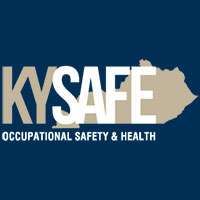
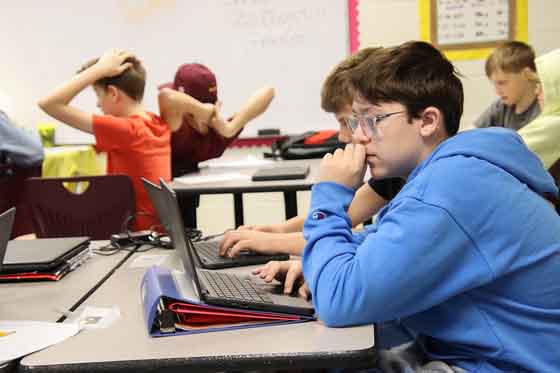



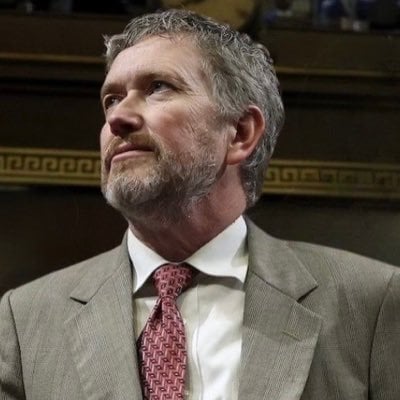
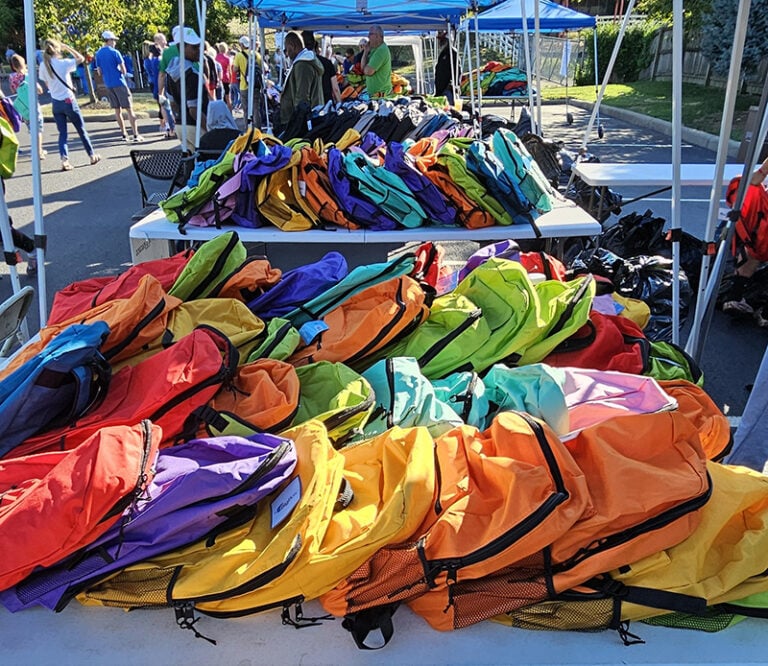



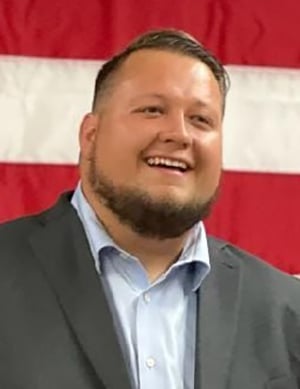
I think many of the veto overrides will be tied up in court for a long time. Observation: I don’t know why any new teacher would want to teach in Kentucky with the pension such as it will be. The good news: Voting rules are more realistic as opposed to say Georgia, Texas, Alabama, et. al.